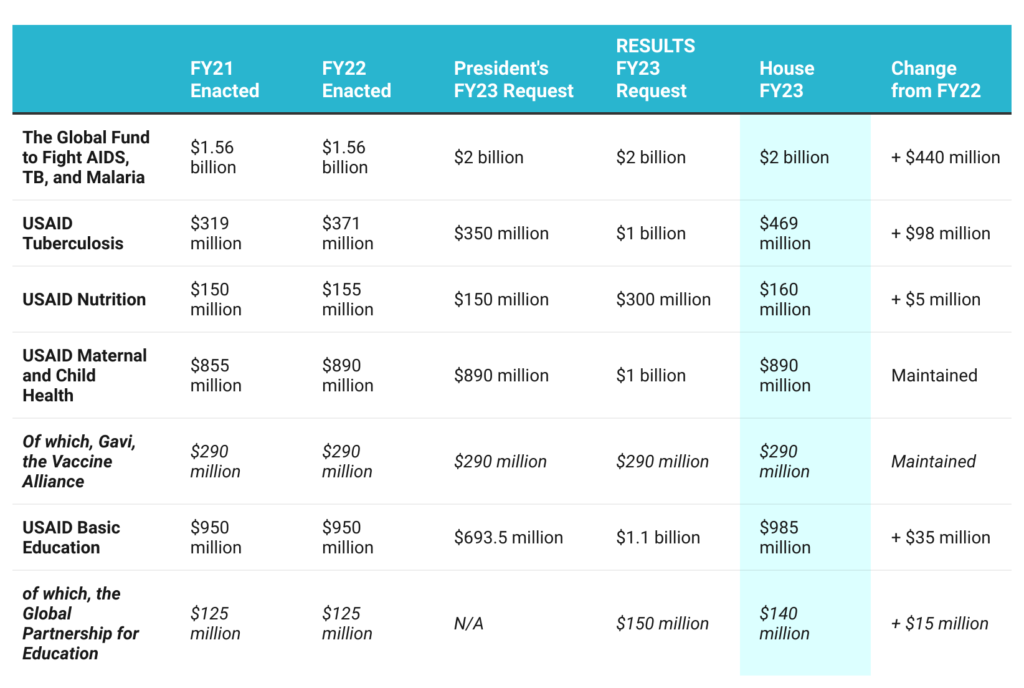House bill includes $2 billion for Global Fund, modest increases to other global accounts
This week the House of Representatives’ Appropriations Committee marked up their fiscal year (FY) 2023 State and Foreign Operations subcommittee (SFOPS) spending bill. This legislation authorizes funding for U.S. foreign assistance programs through the U.S. Agency for International Development (USAID) and the State Department. The bill increases global health assistance 12 percent over the FY 2022 level and provides higher levels of funding for almost every program, with global health security and family planning receiving the largest increases.
Overall the bill provides modest annual increases for most of the accounts that RESULTS tracks. Excitingly, the House matched our level of ambition on the Global Fund to Fight AIDS, Tuberculosis, and Malaria by proposing a funding level of $2 billion for FY23 as the first installment of a three-year pledge of $6 billion. House appropriators also proposed increasing USAID Tuberculosis programs to $469 million ($97.5 million increase), USAID nutrition programs to $160 million ($5 million increase), and $985 million for USAID Basic Education ($35 million increase), including $140 million for the Global Partnership for Education ($15 million increase).
Our work to increase political will to end poverty and increase U.S. foreign assistance is needed now as our partners around the world struggle to recover from crisis upon crisis. After years of the COVID-19 pandemic straining economics and overburdening health systems, the war in Ukraine is pushing food prices to record highs.
We know that the most impoverished and marginalized people will face the worst effects from these compounding crises. UNICEF estimates one child is pushed into severe malnutrition every minute. Peter Sands, Executive Director of the Global Fund to Fight AIDS, TB, and Malaria warns that the knock of effects of the global food crisis will kill millions of additional people—not just from starvation, but because they will have weaker immune defenses against infectious diseases. And according to analysis by the World Bank, without a catch-up plan to recover lost progress on TB due to COVID-19, we could see a 20 percent increase in TB deaths over the next five years (2020-2024).
The House mark-up and proposed increases for these poverty-focused development assistance accounts is a good first step. But it’s just that, a first step. Next, the Senate needs to take up their SFOPS bill. We also still need Republicans and Democrats to come to the table to reach a deal on FY 2023 top line funding agreement. If not, we could see yet another Continuing Resolution (CR) this fall. A CR is a stopgap measure that would fund global health and development accounts at the lower FY22 enacted level.
The problems of today require robust funding negotiated with the scale of those problems in mind. Modest increases and business as usual are not enough to meet the staggering global need for health and educational services the world is facing right now.
The House bill is a good start. But it doesn’t meet the urgency of the moment. We will be following the Senate markup closely and continuing to urge our decision makers to prioritize foreign assistance that is proven to save lives and reduce poverty.

Click on chart to enlarge.